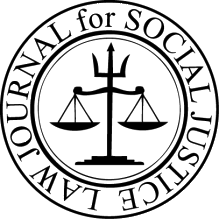By: Fallon Cochlin
On September 21, 2021, Phoenix City Council approved the Financial Assistance for Phoenix Families Program, which will give 1000 low-income Phoenix families $1000 per month for a year. If the program is successful in the first 12 months, the City may choose to continue it. Phoenix is funding this program through the American Rescue Plan Act, the federal COVID-19 relief bill from which the City received $196 million. Phoenix City Council has prioritized investment in the community, with $143 million of ARPA funds supporting “vulnerable populations, businesses, and those hit hardest by the COVID-19 pandemic.” $12 million of this will be utilized by the Financial Assistance for Phoenix Families Program.
The program is expected to begin by January 2022 and the participating families will be drawn from a lottery. The 1000 low-income families who are selected from the lottery will be given a debit card loaded with $1000 each month for each month of 2022. Generally speaking, the card can be used anywhere that accepts debit cards. The card is not limitless, however, and families are restricted from buying alcohol, tobacco, and lottery tickets with the funds. Cash also may not be withdrawn from the card, further limiting its use.
Some have described this program as Phoenix’s pilot Universal Basic Income, but there is a difference between guaranteed income and universal income. The former is supplemental money given to specific groups of people, like the low-income families selected for this program, and the latter is given to everyone regardless of income.
In her interview with 91.5 KJZZ, Aisha Nyandoro argues that even as a guaranteed income program, the Financial Assistance for Phoenix Families Program “misses the mark” because it puts unnecessary restrictions on families. Moral limitations, like excluding the purchase of alcohol, tobacco, and lottery tickets, feed into harmful stereotypes of low-income individuals. Nyandoro, who has experience in establishing these programs, believes that one of the most important aspects of both guaranteed and universal income is “cash without restrictions.”
The impulse to control what people can buy with supplemental income is understandable; many people believe that vices are a waste of money, and the supplemental income is valuable money that shouldn’t be wasted. However, at the heart of this logic is a fundamental distrust in the people receiving this money. Activists argue that these families can make decisions on their own, and do not need to be parented by the government. Perhaps activists like Nyandoro are right, and Phoenix is missing out on some of the benefits of guaranteed income programs by restricting the use of the funds.
Even with its possible faults, the Financial Assistance for Phoenix Families Program is still a step in the right direction. 1000 families in our community are going to receive $12,000 next year that they did not have this year. While it is not an ideal guaranteed income program, it is much better than nothing, and it is commendable that Phoenix City Council is following up on its promise to invest in the community in meaningful ways.
There are a lot more than 1000 families in our community that could use the support of a guaranteed income. If this project is successful, maybe the City will consider a wider guaranteed income scheme, or even in the future, a UBI. When that time comes, Phoenix City Council should remember the importance of autonomy and trust when providing additional financial support to families.
Fallon Cochlin (she/her) is currently a 2L at Sandra Day O’Connor College of Law. Her areas of interest include economic inequality, racial justice, and the intersection of spirituality and science. In her personal life, Fallon is passionate about poetry, nature, and performing arts.

